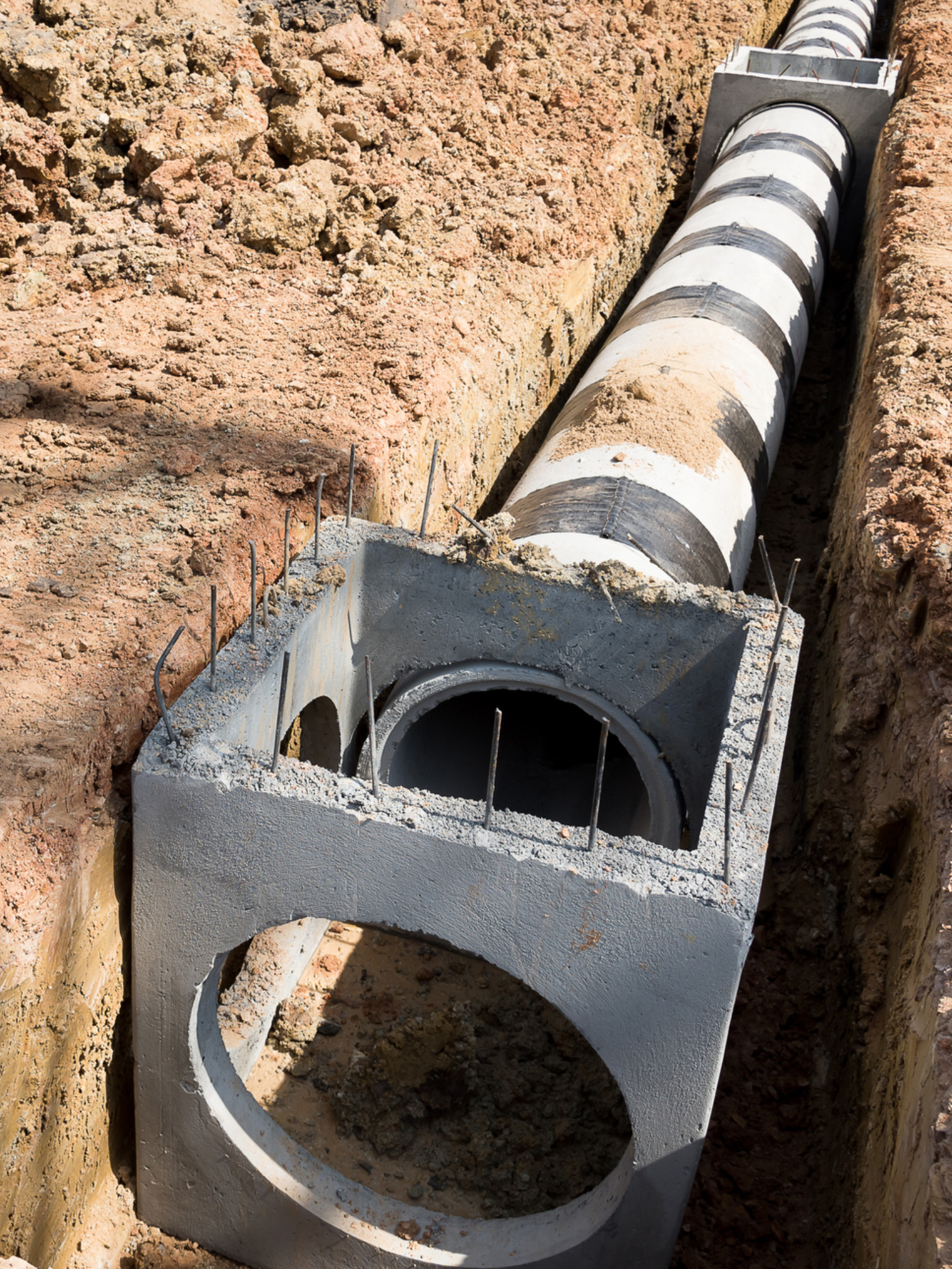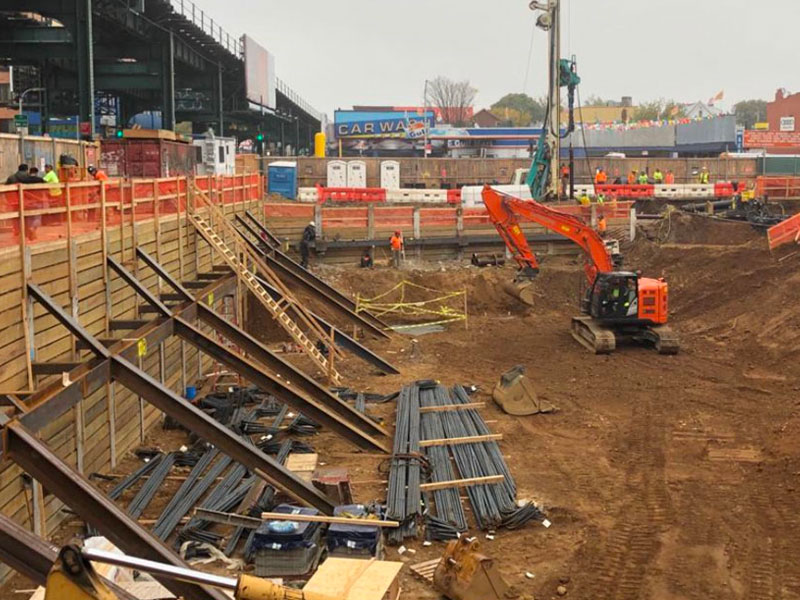Business Lancaster Trenching - Trenching Providers for Companies in Lancaster
Comprehensive Excavation Approaches: Understanding the Fundamentals for Success
In the realm of construction and civil engineering, the importance of effective excavation techniques can not be overemphasized. The cautious preparation, accurate execution, and thorough attention to information required in excavation jobs require a thorough approach that encompasses different essential aspects. From preliminary dirt evaluation to the application of precaution and routine progression tracking, grasping these core components is vital for attaining success in any kind of excavation undertaking. However, the true mastery exists not just in comprehending these fundamentals however in flawlessly integrating them to browse the intricacies of excavation jobs with skill.
Recognizing Excavation Task Planning

Successful excavation projects are constructed on the foundation of precise and thorough preparation. The initial stage of any excavation project is the drawing board, where critical choices are made that can dramatically affect the end result of the task. During this phase, it is necessary to gather all pertinent information about the site, consisting of topographical surveys, soil make-up, and any possible hazards that may exist. Recognizing the project timeline, range, and spending plan constraints is critical for creating a detailed excavation plan that makes sure the task's success.
One key aspect of excavation project preparation is the advancement of a detailed timeline that outlines the series of target dates, milestones, and activities. This timeline serves as a roadmap for the project team, enabling them to track progression and make necessary changes to guarantee the project stays on schedule. Additionally, a well-defined budget that represents all expenditures, including devices rental, labor costs, and materials, is important for avoiding price overruns and delays. By thoroughly taking into consideration all these aspects throughout the planning stage, excavation jobs can be carried out efficiently and properly, resulting in effective outcomes.
Dirt Evaluation and Site Evaluation
Performing detailed dirt evaluation and website assessment is an essential step in the prep work phase of any kind of excavation task. Soil evaluation entails identifying the make-up, structure, and buildings of the soil at the excavation website. This information is crucial for comprehending the dirt's bearing ability, dampness material, and potential for disintegration, which are essential variables in establishing the excavation approaches and equipment required for the project.
Website examination surpasses soil evaluation and incorporates a broader assessment of the general site problems. This evaluation consists of determining any possible threats, such as underground energies, ecological worries, or unsteady terrain, that can influence the excavation procedure. By thoroughly assessing the website, task supervisors can establish efficient excavation methods that focus on safety and security, performance, and environmental management.
Utilizing sophisticated modern technologies like ground-penetrating radar, dirt tasting, and drone surveys can improve the precision and efficiency of soil evaluation and website assessment. Spending time and sources in these initial steps can eventually conserve time and prevent costly delays or complications throughout the excavation process.
Devices Choice and Utilization
Effective excavation projects rely greatly on tactical devices choice and application to make certain ideal efficiency and performance. Selecting the ideal devices for the work is important in making the most of performance and minimizing downtime. Elements such as the kind of soil, depth of excavation, and job extent play a significant function in figuring out the most ideal devices for the job at hand.
Along with picking the ideal tools, appropriate usage is vital to task success. Operators has to be educated to take care of the devices securely and effectively - lancaster trenching. Regular maintenance checks and prompt repairs assist protect against break downs and make sure regular performance throughout the project
Security Measures and Regulations Compliance
In the realm of excavation tasks, focusing on safety measures and conformity with guidelines is extremely important to making certain a safe and secure and lawfully audio operational environment. click Precaution include a series of techniques, consisting of performing comprehensive website analyses, implementing appropriate signs and barriers, and offering appropriate safety and security training for all employees included in the excavation process. Adherence to laws, such as OSHA requirements in the USA, guarantees that the excavation job meets the necessary requirements to shield workers, spectators, and the surrounding environment.

Surveillance Development and Adjusting Methods
Just how can forecast managers effectively track the improvement of excavation jobs and adapt their approaches as necessary to maximize results? Surveillance progression is crucial for ensuring that excavation projects remain on track and satisfy target dates.

Verdict
To conclude, understanding the basics of thorough excavation approaches is vital for the success of any go to the website kind of task. By comprehending project planning, assessing soil and site conditions, selecting ideal equipment, following safety policies, and checking progression, task managers can make sure a smooth and effective excavation procedure. Carrying out these methods will result in successful outcomes and decrease potential threats or setbacks throughout the excavation task.
The initial phase of any excavation project is the planning phase, where vital decisions are made that can considerably influence the outcome of the task. Understanding the job budget, timeline, and extent restrictions is essential for developing a detailed excavation strategy that ensures the project's success.
Exactly how can predict managers effectively track the advancement of excavation projects and adapt their techniques accordingly to maximize end results? By closely checking progress and being willing to adapt approaches, project supervisors can boost the general success of excavation projects.
By comprehending project planning, examining soil and site problems, selecting suitable equipment, complying with security regulations, and checking progression, task supervisors can make sure a smooth and efficient excavation process.